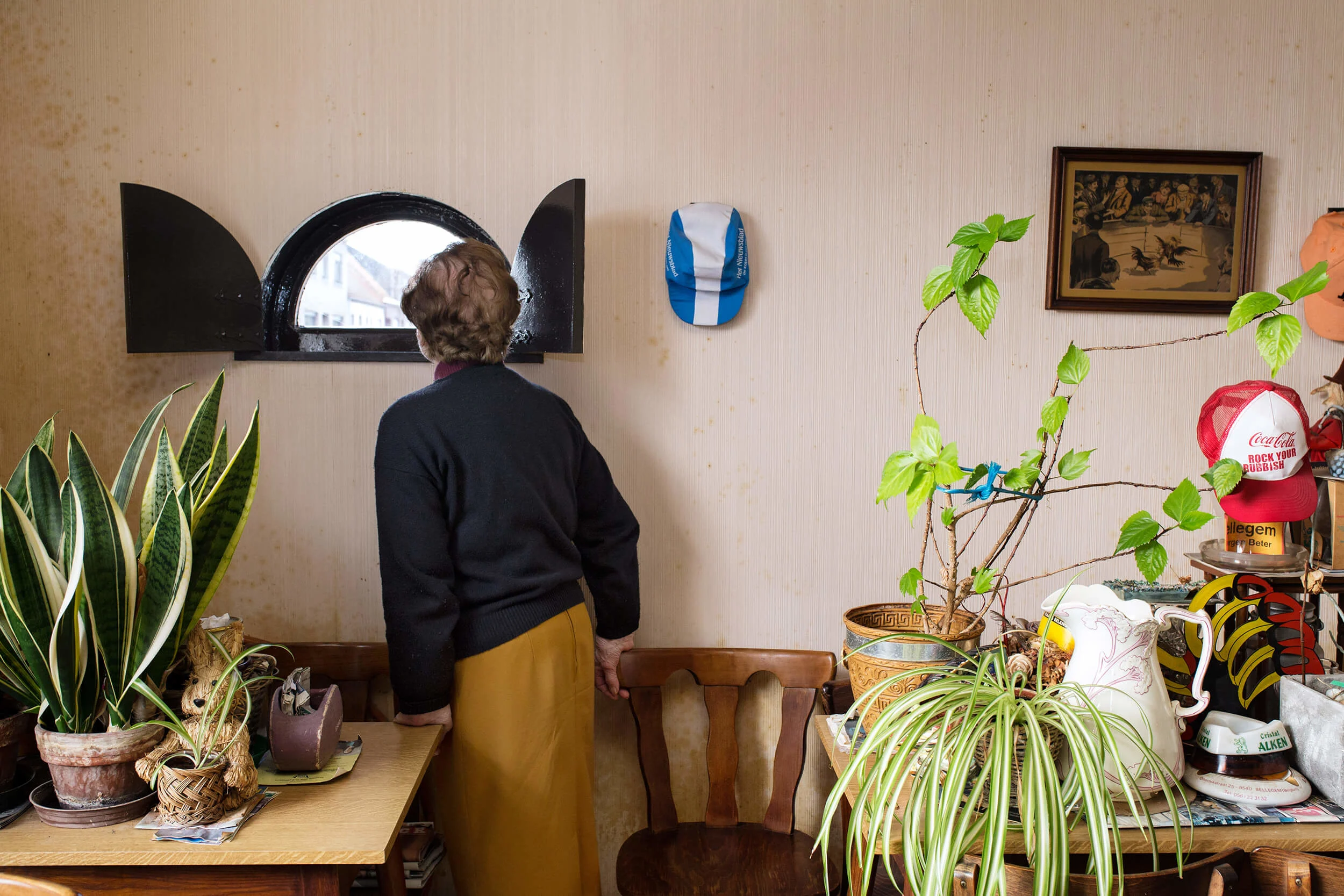
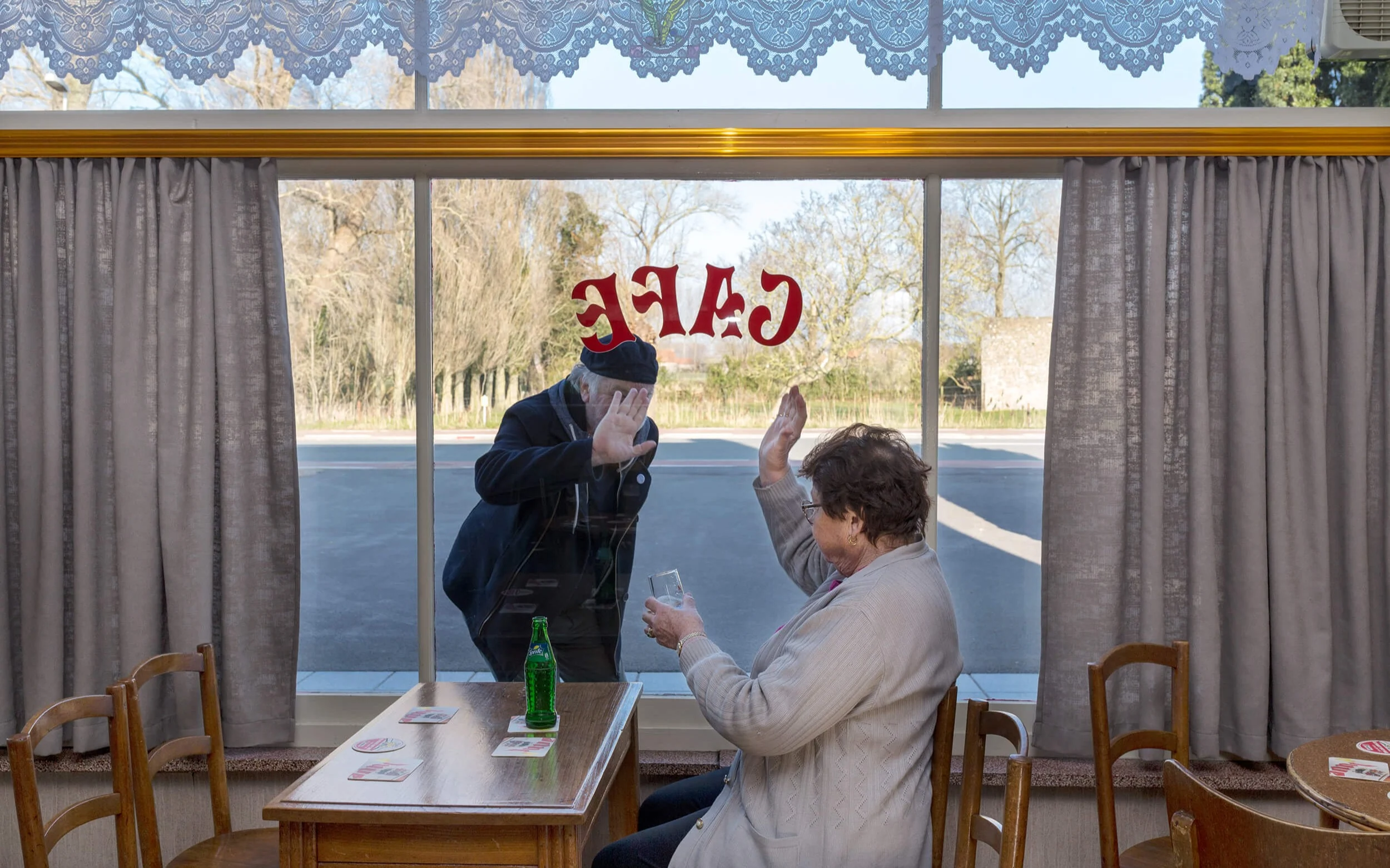
Jef Van den Bossche’s father, Jan, wrote the book on Flemish volkscafés – traditional pubs where people from all walks of life can meet and talk freely, and even hawk the occasional sausage. These establishments were once the heart of their communities, but since the turn of the last century, their numbers have been declining. Now, Jef has released his own book immortalizing them, using photography to tell their story rather than words. Writer Diane Smyth speaks to the father and son duo about the irreplaceable spirit of the volkscafé, and what we all stand to lose if they disappear.
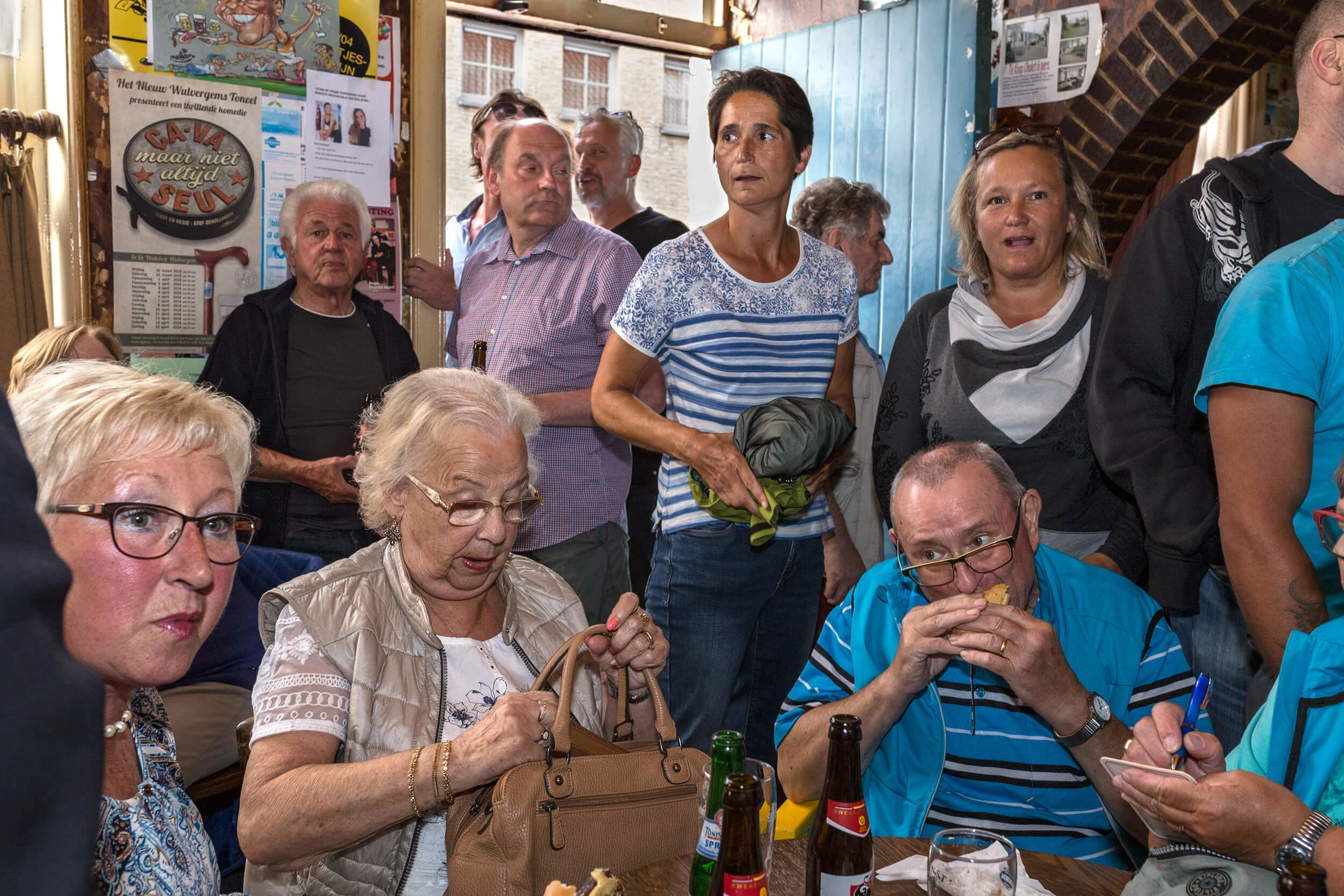
In 2001, Belgian writer Jan Van den Bossche published a book looking at volkscafé culture in the Antwerp province. Similar to an English or Irish pub, or a Dutch brown café, Flemish “people’s cafés” are cozy, welcoming and open to guests of all ages, so Van den Bossche took his son Jef along on his research, playing “On a soif!” (We are thirsty!), a French drinking song by Belgian pop singer Grand Jojo, as they drove from place to place.
Jef was only eight when the book came out, but he still remembers the journeys – much to the amusement of his father. “I think [the trip] was something like mother’s milk,” laughs Jan. “But this was the father’s version.”
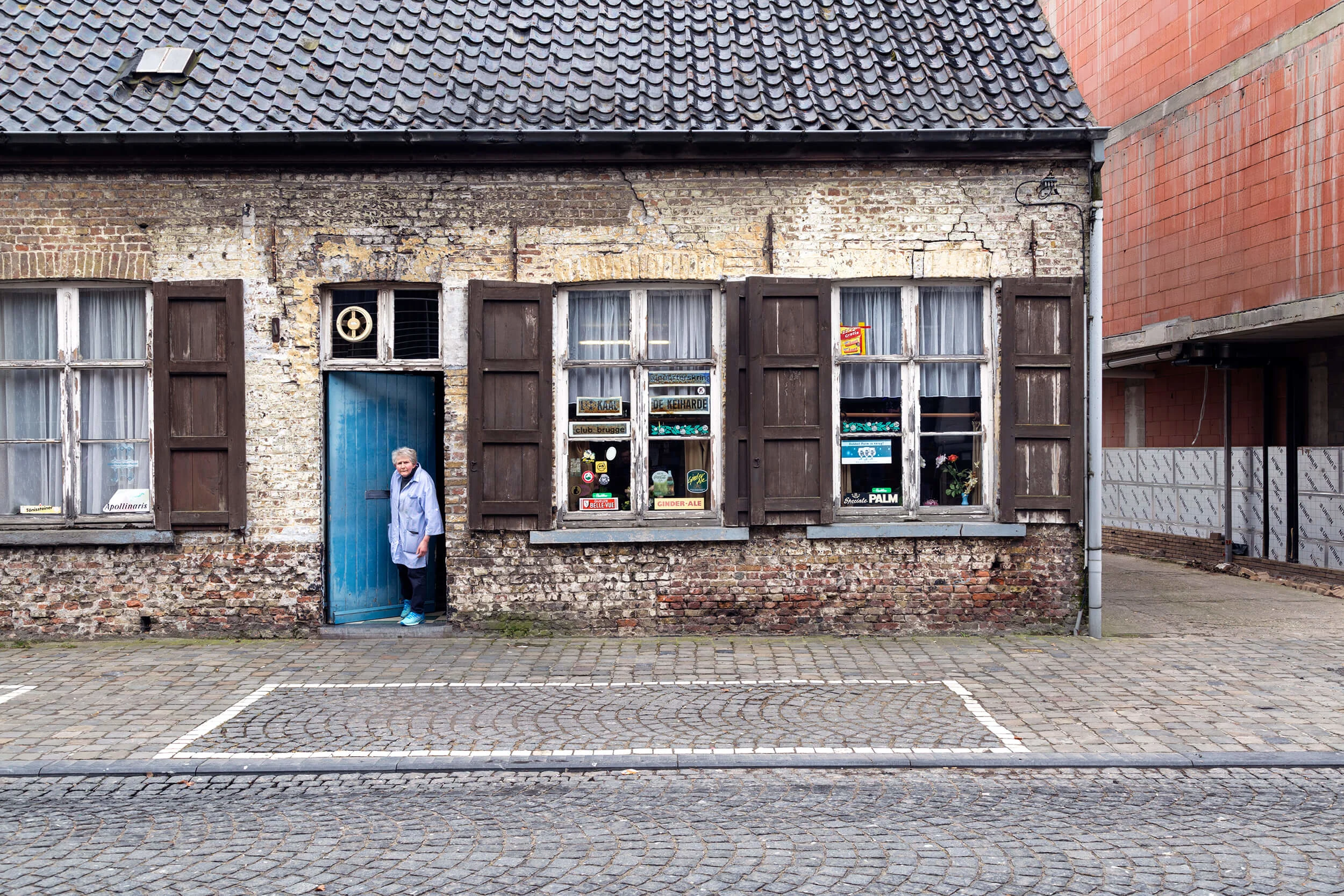


Fast forward to 2022 and Jef has self-published a photography book centered on volkscafés, titled “On a soif.” For it, he traveled to bars all over Belgium to capture their spirit – and he brought his father with him.
“What intrigues me about these places is that they incite an increasingly rare social interaction,” Jef explains in the book’s introduction. “Volkscafés are meeting places for a cross section of society where customers simply get to be themselves. So when lawyers, construction workers, know-it-alls and philosophers no longer get to solve world problems at their local bar, the communal life fades away.”
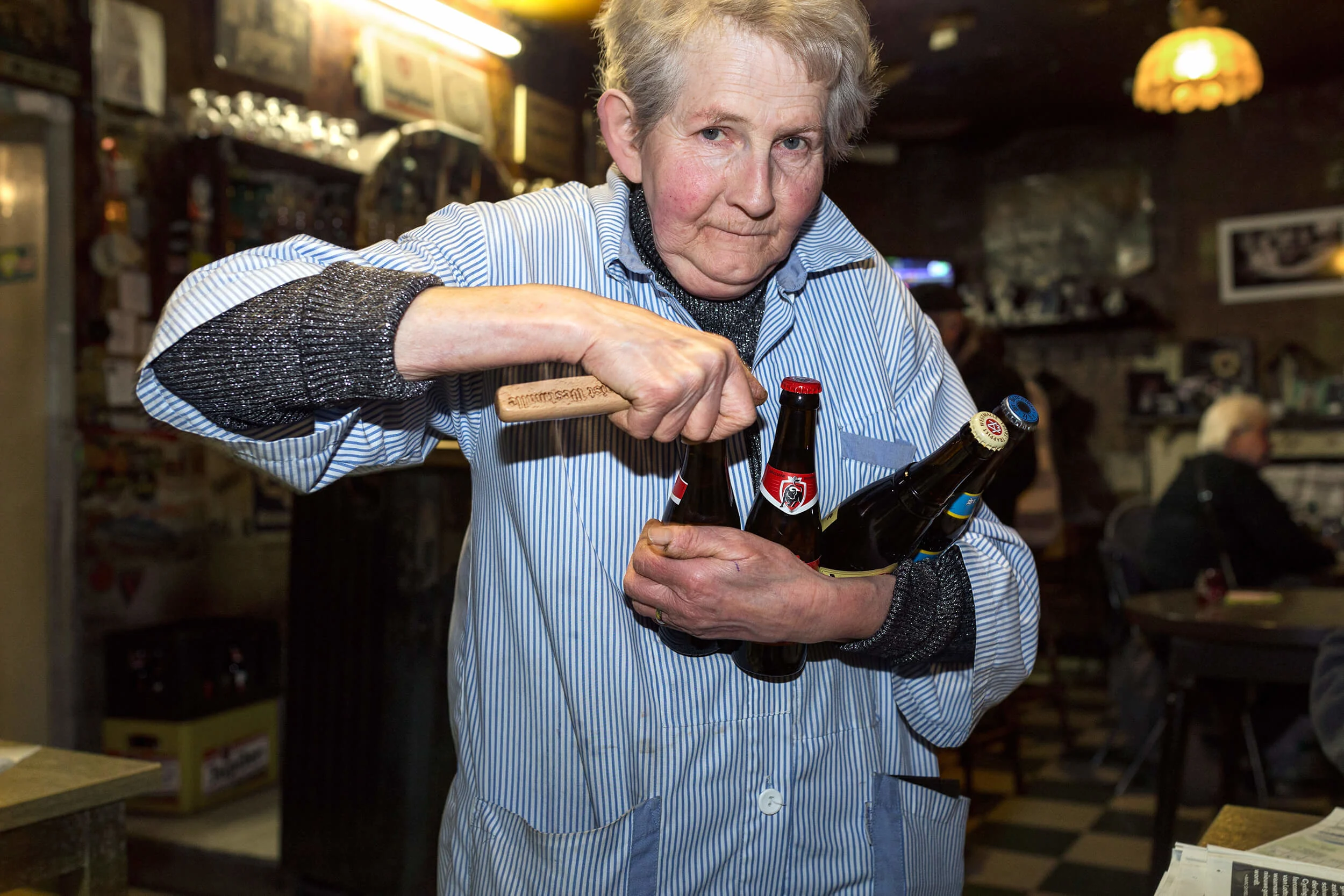
Jan and Jef both sought out older establishments that had been in business for at least a couple of decades, though some were much older. These cafés serve beer, soda and the occasional bar snack. Kitted out with aging furniture, blotchy mirrors and traditional wooden paneling, their interiors aren’t fancy. But what really unites these volkscafés, according to Jef, is the friendliness of their patrons.
“In some cafés there were old guys sitting at one table, not looking at each other. At others, they were yelling from table to table. But the thing [the volkscafés] all shared was that once you came in, you didn’t need to wait long before someone started a conversation.”
According to Jan, these spaces, once widespread across Belgium, have been in decline since the 1950s. He wrote his book back in 2001 in a bid to help them, but 20 years later, the landscape has only gotten worse. Jef estimates that three or four of the 40 volkscafés he photographed between January 2018 and June 2019 have since shut down.
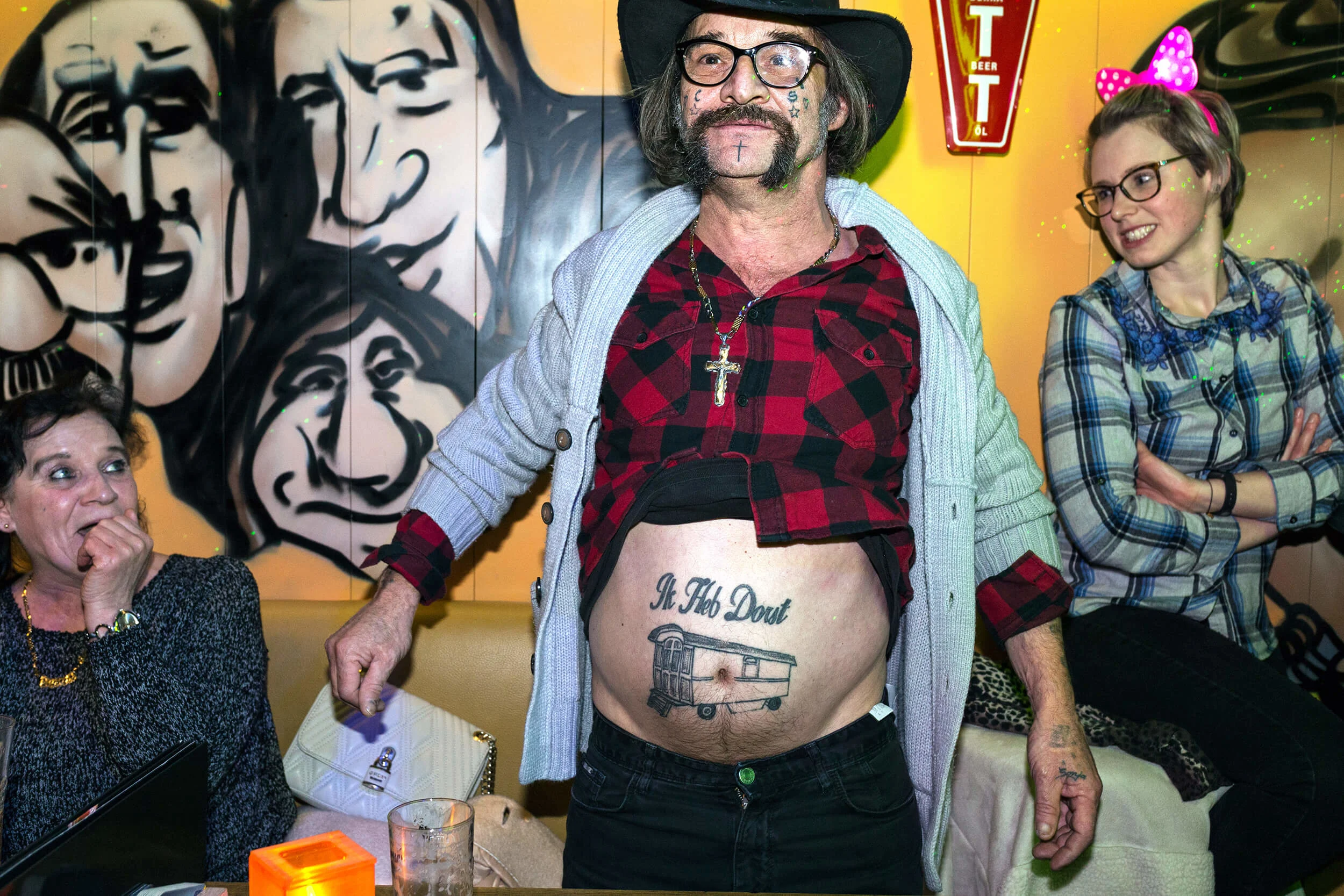

Among them was Café de Tijger in Jabbeke, a small town near Bruges, which had been run by the same family for three generations. When Jef first visited in February 2018, he learned its elderly owner was retiring, and that afterwards, it would be demolished to make way for apartments. He went back to shoot it several times, and even attended its closing party.
“There were more than 500 people at the goodbye party. Outside, there was a stage with people performing...It was really a very emotional goodbye,” he says. “Now it’s [been replaced with] these small, pseudo-medieval apartment blocks, which have no cultural value for the historic town center. It’s really a shame.”
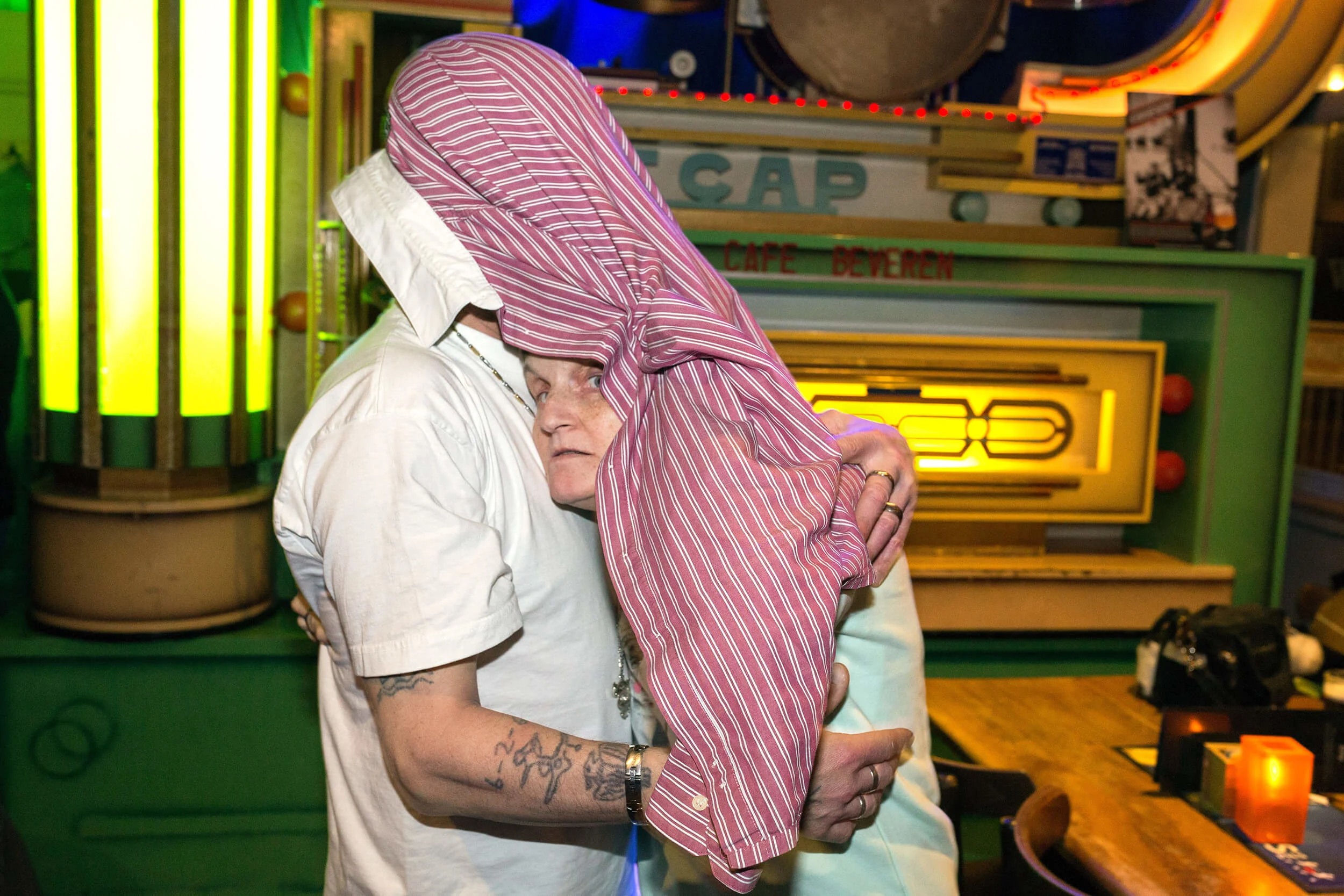
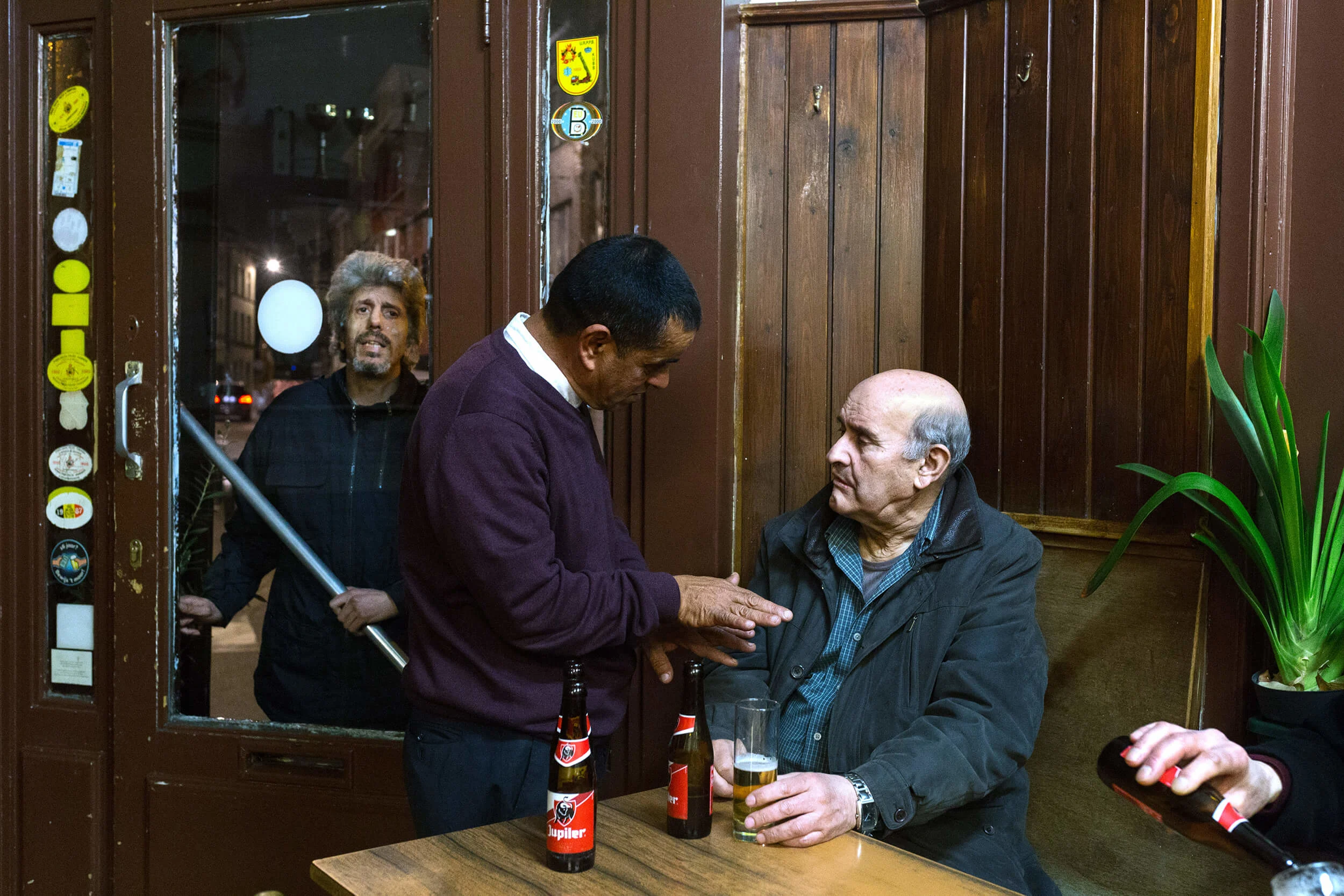
The reasons for the volkscafés’ disappearance are complicated. For many establishments, rising beer prices and taxes have led to poor sales, which can lead to financial penalties from breweries when targets aren’t met. Some proprietors, like the former owner of Café de Tijger, have sold their buildings for high sums to property developers looking to replace them with flats.
But broader cultural shifts have played a part too. Stricter drinking and driving laws and the rise of TV have given people a reason to stay at home, while smartphones and computers mean they don’t need to get out to get the news or talk to their friends. Smoking has been banned in cafés and bars across the country since 2011, and if you want to stay out all night, you’re better off going to a club. (Once it was possible to head out to a volkscafé at 2am or much later, Jan recalls, but now, they’re usually shut by 1am.)
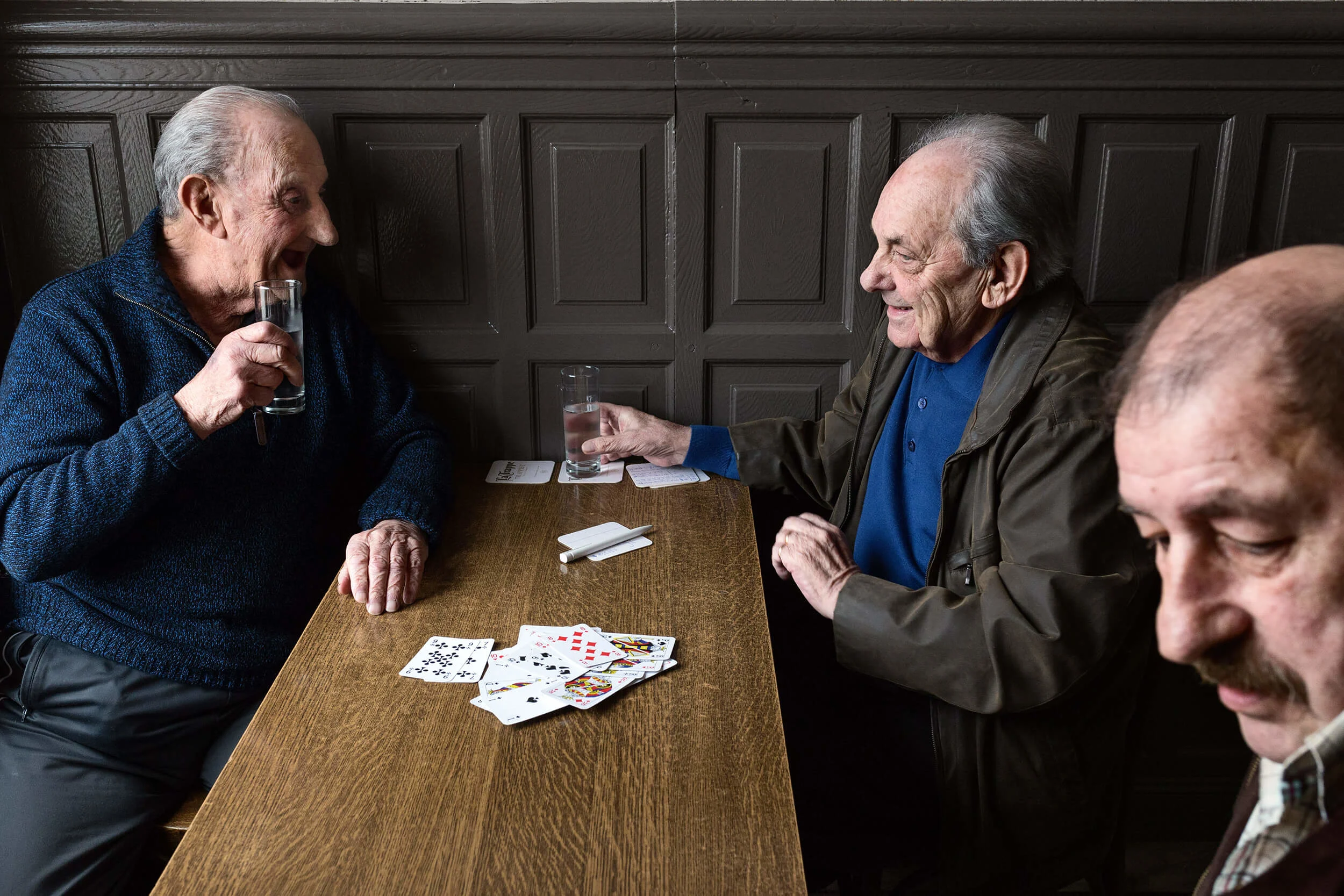
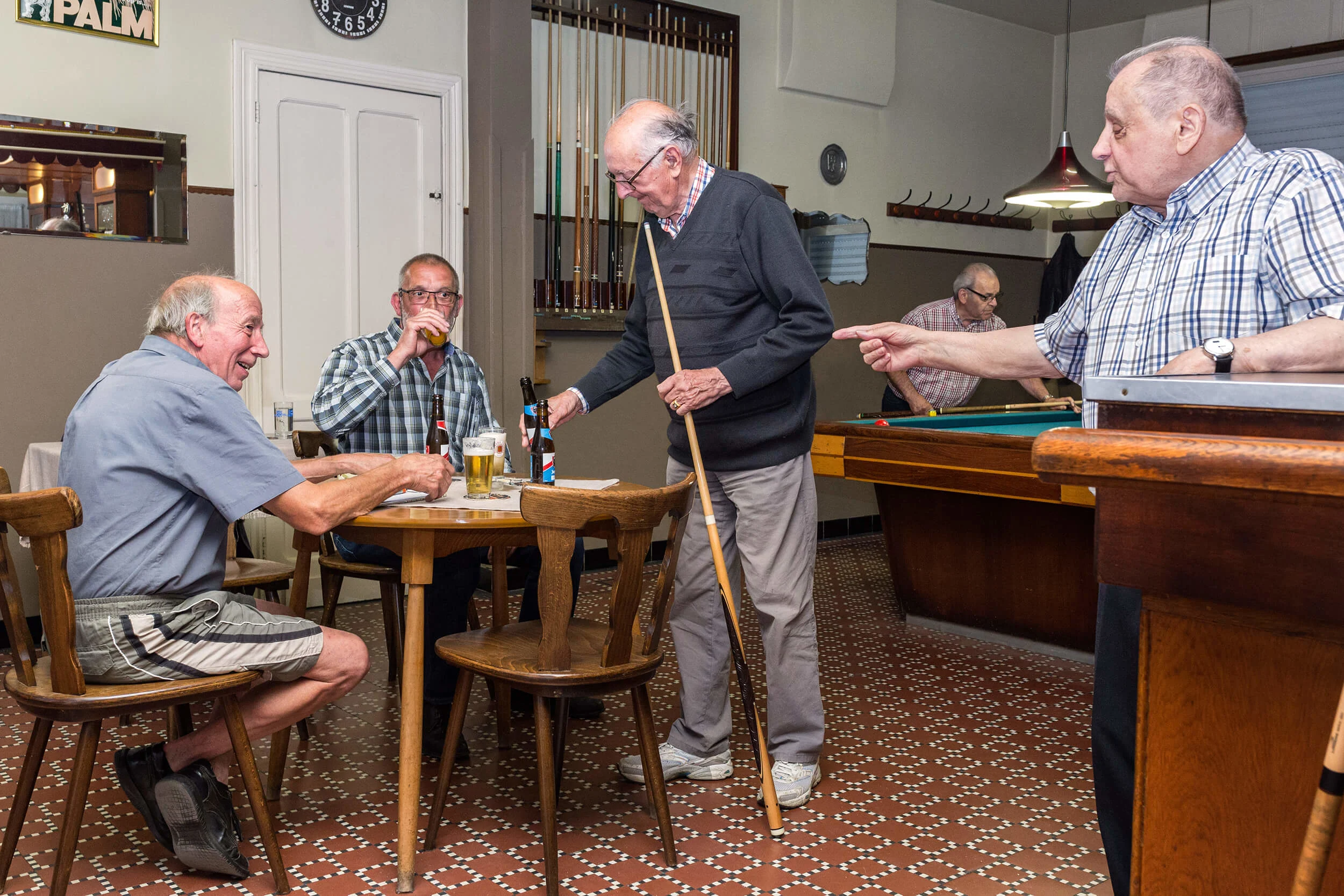
Today, many of Jef’s photos feel like something out of a time capsule. In a shot from Café De Kerselaar in Ypres, for example, two people read a newspaper, while three more sit next to an old stove for warmth. Photos taken at Café Bostella in Essen capture its then 87-year-old landlady, Julia, picking up a sausage – an homage to the days when locals would sell sausages, eggs, spirits and even clothes on her billiards table. The practice came to an end after a visit from the health inspector. “Now she still sells sausages,” Jef says. “But from her little kitchen in the back.”
But amid the decline, there are signs of a revival. In Belgium, there’s been a renewed interest in independent businesses and community initiatives, and according to Jef, young people have been drawn to the convivial volkscafé atmosphere. “It’s about the importance of meeting,” Jan says. “I talk with you, and I talk with you and I talk with everyone.” While there’s an old-fashioned charm to the establishments he visited, what Jef’s images really record is a way of life and a way of relating to others that we’d be all the poorer for losing.
